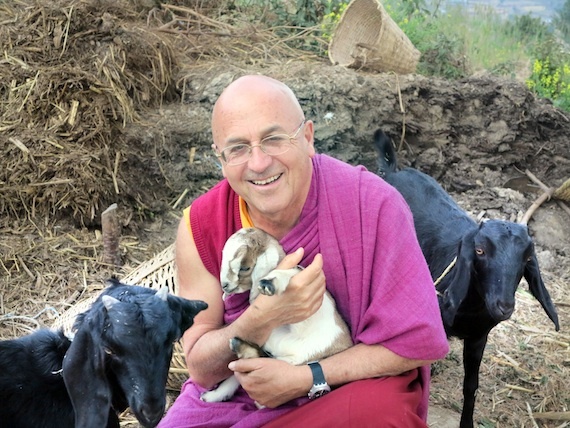When my book, In Defense of Animals, was published last fall in France, the complaint I most often heard during interviews and television and radio talk shows was that my concern over the fate of animals was "offensive." Why? "Because so much suffering already afflicts human beings."
My critics viewed my concern for the welfare of animals as an insult to mankind. At first, their indignation seems to be grounded upon high virtues, but when examined, it actually turns out to be highly illogical.
Their argument is based on the idea that devoting any thoughts, words or actions toward the reduction of the unspeakable sufferings deliberately inflicted on animals is indecent because it distracts us from the task of alleviating human suffering.
If that is the case, then what about the time and energy spent on listening to classical music, practicing sports or even getting a tan on a beach? Are these activities offensive because they are not preventing the famine in Somalia? What harm is caused to human beings in trying to alleviate the suffering of animals?
Compassion is not a commodity that has to be distributed sparingly like the last pieces of a delicious chocolate cake. It is a way of being, an attitude, an intention to do good and to remedy suffering.
By caring for animals as well, we do not love human beings less. We actually can love them better because our altruistic love grows stronger and vaster. Someone who only cares for a small fraction of sentient beings demonstrates a biased, narrow and diminished compassion.
The French philosopher Luc Ferry rightly noted:
Can someone explain how torturing and killing billions of animals helps to promote human rights? Is it thanks to mistreating animals that we become more sensitive to the plight of the Kurds? We can take care of our families, our jobs, and engage in political life or in community service without having to slaughter animals.
Declaring that it is immoral to be concerned by the fate of animals while millions of people are starving seems like an easy escape hatch for those who do not do much either for humans or for animals.
The late humanitarian Sister Emmanuelle asked a cynical Parisian interviewer who questioned the ultimate usefulness of her charitable work in Egyptian slums by asking: "And you, sir, what do you do for humanity?"
We live in a complex interdependent world where the fate of every being is closely linked to that of others. The point is not to care only about animals, but also about them. In truth, we will either win or lose together.
Today, the breeding industry that supplies meat for the richest countries consumes 750 million tons of wheat and corn every year. That would be enough to feed the 1.4 billion poorest humans in the countries where those cereals are produced. [1]
Raising livestock for meat production contributes to 14.5 percent of greenhouse gas emissions linked to human activities (higher than the percentage created by transportation). [2]
Concern about the mass slaughter of animals does not diminish our determination to address the plight of the Syrians. It simply expresses compassion and the wish to improve the quality of life for all beings.
References:
1. According to The Worldwatch Institute's comparative analysis of agricultural innovations that are ecologically long-lasting to reduce poverty and hunger.
2. According to the estimates given in the IPCC (UN International Panel on Climate Change) report released in April 2014.
Photo credit: Photo of Matthieu Ricard was taken by Raphaele Demandre.

